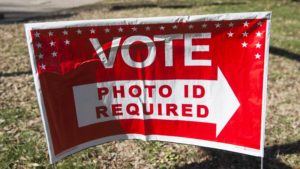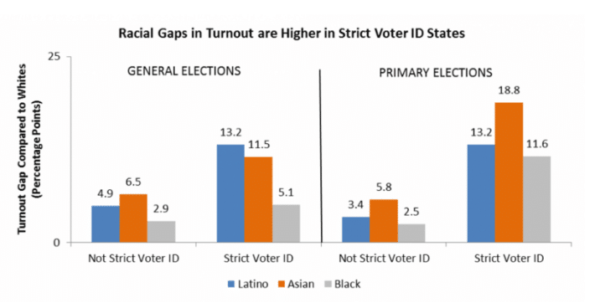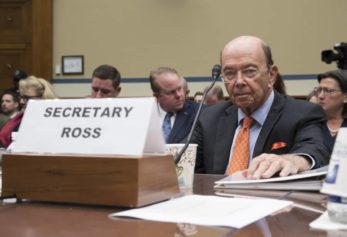
A federal appeals court ruled that Texas’ strict voter ID laws openly discriminate against Black and Latino voters.
Conservative lawmakers often tout voter ID laws as a method of combating voter fraud, but study after study has shown that, while possible, voter fraud is incredibly rare. A new study by political scientists Zoltan L. Hajnal, Nazita Lajevardi and Lindsay Nielson proves that not only are these laws ineffective in solving a “barely there” issue, but they’re racist as well.
Their study, which examined the proliferation of stricter voter ID laws and its relation to the suppression of minority votes, revealed that the laws reduce turnout among Black American, Latino and Asian voters, while white voter turnout remains “largely unaffected.” As a result, the makeup of the electorate changes, shifting election outcomes in favor of the Republican party. The researchers asserted that in states with harsh laws requiring a photo ID to vote, “the influence of Democrats and liberals wanes and the power of Republicans grows.”
For Latinos, these laws were especially damaging: voter turnout was 7.1 percentage points lower in general elections and 5.3 points lower in primaries in strict ID states than it was in states with more lenient laws. These gaps in turnout were consistent among other racial and ethnic minorities.
The turnout gap between African-Americans and white voters was 5.1 percentage points in general elections and 11.6 percentage points in primaries in states with strict voter ID laws. These gaps were much smaller in states that did not require a photo ID in order to vote. For instance, the Asian-white gap jumped from 6.5 to 11.5 percent in general elections in strict ID states; the turnout gap also grew from 5.8 to 18.8 percent in primaries.
The research showed that racial/ethnic minorities are disproportionately affected by these stringent voter ID laws, especially since Black Americans, Latinos and Asian-Americans are less likely to have a photo ID.
“These findings persist even when we take many other factors into account, including partisanship, demographic characteristics, election contexts and other state laws that encourage or discourage participation,” the study authors wrote in a piece for The Washington Post. “Racial gaps persist even when we limit our analysis to Democrats or track shifts in turnout in the first election after strict rules are implemented. Definitively determining that the laws themselves are what lowers turnout is always difficult without an experiment, but however we look at it, strict voter ID laws suppress minority votes.”
State voting laws that prevent or prohibit any citizen from voting on account of their race are illegal under the Voting Rights Act, but a few courts have since reversed these discriminatory ID laws in recent years. In July 2016, a federal appeals court ruled that Texas’ voter ID law, one of the strictest in the nation, openly discriminated against African-American and Latino voters as “Blacks were 1.78 times more likely than Whites, and Latinos 2.42 times more likely, to lack” a photo ID. Another appeals court came to a similar conclusion that same month, striking down North Carolina’s voter ID law because it was “passed with racially discriminatory intent.”
However, ThinkProgress pointed out that although an appeals court found that South Carolina’s law intentionally tried to suppress the Black vote, four conservative Supreme Court justices voted to reinstate the law before the 2016 presidential election.
“If Judge Neil Gorsuch, President Donald Trump’s nominee to fill the vacant seat on the Supreme Court, is confirmed, he will likely be the fifth vote in favor of racial voter suppression,” the online news site stated.
As for Texas, the Justice Department’s federal investigation into its discriminatory voter ID law is expected to resume after a month-long break requested by the now Trump-led department, according to The Washington Post. Newly appointed attorney general Jeff Sessions will be left to decide whether to move forward with the case.

